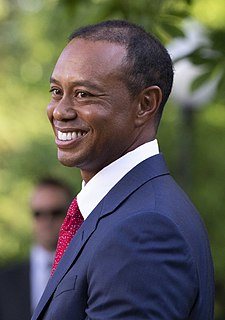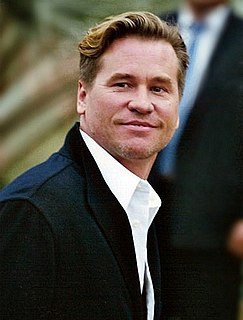
Arnold Alois Schwarzenegger is an Austrian-American actor, film producer, businessman, former bodybuilder and politician who served as the 38th governor of California between 2003 and 2011. As of 2022, he is the most recent Republican governor of California. Time magazine named Schwarzenegger one of the 100 most influential people in the world in 2004 and 2007.

Benjamin Franklin was an American polymath who was active as a writer, scientist, inventor, statesman, diplomat, printer, publisher, and political philosopher. Among the leading intellectuals of his time, Franklin was one of the Founding Fathers of the United States, a drafter and signer of the United States Declaration of Independence, and the first United States Postmaster General.

Sir Charles Spencer Chaplin Jr. was an English comic actor, filmmaker, and composer who rose to fame in the era of silent film. He became a worldwide icon through his screen persona, the Tramp, and is considered one of the film industry's most important figures. His career spanned more than 75 years, from childhood in the Victorian era until a year before his death in 1977, and encompassed both adulation and controversy.

Dwight David "Ike" Eisenhower was an American military officer and statesman who served as the 34th president of the United States from 1953 to 1961. During World War II, he served as Supreme Commander of the Allied Expeditionary Force in Europe, and achieved the five-star rank of General of the Army. He planned and supervised the invasion of North Africa in Operation Torch in 1942–1943 and the invasion of Normandy from the Western Front in 1944–1945.

Elvis Aaron Presley was an American singer and actor. Dubbed the "King of Rock and Roll", he is regarded as one of the most significant cultural icons of the 20th century. His energized interpretations of songs and sexually provocative performance style, combined with a singularly potent mix of influences across color lines during a transformative era in race relations, led him to both great success and initial controversy.

Ernest Miller Hemingway was an American novelist, short-story writer, and journalist. His economical and understated style—which he termed the iceberg theory—had a strong influence on 20th-century fiction, while his adventurous lifestyle and public image brought him admiration from later generations. Hemingway produced most of his work between the mid-1920s and the mid-1950s, and he was awarded the 1954 Nobel Prize in Literature. He published seven novels, six short-story collections, and two nonfiction works. Three of his novels, four short-story collections, and three nonfiction works were published posthumously. Many of his works are considered classics of American literature.

George Washington was an American military officer, statesman, and Founding Father who served as the 1st president of the United States from 1789 to 1797. Appointed by the Continental Congress as commander of the Continental Army, Washington led the Patriot forces to victory in the American Revolutionary War and served as the president of the Constitutional Convention of 1787, which created the Constitution of the United States and the American federal government. Washington has been called the "Father of the Nation" for his manifold leadership in the formative days of the country.

Gaius Julius Caesar was a Roman general and statesman. A member of the First Triumvirate, Caesar led the Roman armies in the Gallic Wars before defeating his political rival Pompey in a civil war, and subsequently became dictator of Rome from 49 BC until his assassination in 44 BC. He played a critical role in the events that led to the demise of the Roman Republic and the rise of the Roman Empire.

Marlon Brando Jr. was an American actor. Considered one of the most influential actors of the 20th century, he received numerous accolades throughout his career, which spanned six decades, including two Academy Awards, two Golden Globe Awards, one Cannes Film Festival Award and three British Academy Film Awards. Brando was also an activist for many causes, notably the civil rights movement and various Native American movements. Having studied with Stella Adler in the 1940s, he is credited with being one of the first actors to bring the Stanislavski system of acting, and method acting, derived from the Stanislavski system, to mainstream audiences.

Mikhail Sergeyevich Gorbachev is a Russian and former Soviet politician. The eighth and final leader of the Soviet Union, he was the General Secretary of the Communist Party of the Soviet Union from 1985 until 1991. He was also the country's head of state from 1988 until 1991, serving as the chairman of the Presidium of the Supreme Soviet from 1988 to 1989, chairman of the Supreme Soviet from 1989 to 1990, and president of the Soviet Union from 1990 to 1991. Ideologically, Gorbachev initially adhered to Marxism–Leninism although he had moved towards social democracy by the early 1990s.

Richard Milhous Nixon was the 37th president of the United States, serving from 1969 to 1974. Known as Richard M. Nixon for most of his career, he was a member of the Republican Party who previously served as a representative and senator from California and was the 36th vice president from 1953 to 1961. His five years in the White House saw reduction of U.S. involvement in the Vietnam War, détente with the Soviet Union and China, the first manned Moon landings, and the establishment of the Environmental Protection Agency. Nixon's second term ended early, when he became the only president to resign from office, following the Watergate scandal.

Thomas Jefferson was an American statesman, diplomat, lawyer, architect, philosopher, and Founding Father who served as the 3rd president of the United States from 1801 to 1809. He was previously the second vice president of the United States under John Adams and the first United States secretary of state under George Washington. The principal author of the Declaration of Independence, Jefferson was a proponent of democracy, republicanism, and individual rights, motivating American colonists to break from the Kingdom of Great Britain and form a new nation; he produced formative documents and decisions at both the state and national levels.

Theodore Roosevelt Jr., often referred to as Teddy or his initials T. R., was an American politician, statesman, conservationist, naturalist, historian, and writer who served as the 26th president of the United States from 1901 to 1909. He previously served as the 25th vice president under William McKinley from March to September 1901, and as the 33rd governor of New York from 1899 to 1900. Having assumed the presidency after McKinley's assassination, Roosevelt emerged as a leader of the Republican Party and became a driving force for anti-trust and Progressive policies.

Vincent Willem van Gogh was a Dutch Post-Impressionist painter who posthumously became one of the most famous and influential figures in Western art history. In a decade, he created about 2,100 artworks, including around 860 oil paintings, most of which date from the last two years of his life. They include landscapes, still lifes, portraits, and self-portraits, and are characterised by bold colours and dramatic, impulsive and expressive brushwork that contributed to the foundations of modern art. He was not commercially successful and, struggling with severe depression and poverty, committed suicide at the age of 37.

Sir Winston Leonard Spencer Churchill, was a British statesman, soldier and writer who served as Prime Minister of the United Kingdom from 1940 to 1945, during the Second World War, and again from 1951 to 1955. Apart from two years between 1922 and 1924, he was a Member of Parliament (MP) from 1900 to 1964 and represented a total of five constituencies. Ideologically an economic liberal and imperialist, he was for most of his career a member of the Conservative Party, which he led from 1940 to 1955. He was a member of the Liberal Party from 1904 to 1924.

Eldrick Tont "Tiger" Woods is an American professional golfer. He is tied for first in PGA Tour wins, ranks second in men's major championships, and holds numerous golf records. Woods is widely regarded as one of the greatest golfers of all time and one of the most famous athletes in modern history. He is an inductee of the World Golf Hall of Fame.

Val Edward Kilmer is an American actor. Originally a stage actor, Kilmer found fame after appearances in comedy films, starting with Top Secret! (1984) and Real Genius (1985), as well as the military action film Top Gun (1986) and the fantasy film Willow (1988).

Prince Philip, Duke of Edinburgh, was the husband of Queen Elizabeth II. As such, he was the consort of the British monarch from her accession as queen on 6 February 1952 until his death in 2021, making him the longest-serving royal consort in history.

Muhammad Ali was an American professional boxer and activist. Nicknamed "The Greatest", he is widely regarded as one of the most significant and celebrated sports figures of the 20th century, and is frequently ranked as the greatest heavyweight boxer of all time. In 1999, he was named Sportsman of the Century by Sports Illustrated and the Sports Personality of the Century by the BBC.

John R. Cash was an American singer-songwriter. Much of Cash's music contained themes of sorrow, moral tribulation, and redemption, especially in the later stages of his career. He was known for his deep, calm bass-baritone voice, the distinctive sound of his Tennessee Three backing band characterized by train-like chugging guitar rhythms, a rebelliousness coupled with an increasingly somber and humble demeanor, free prison concerts, and a trademark all-black stage wardrobe which earned him the nickname "The Man in Black".



















